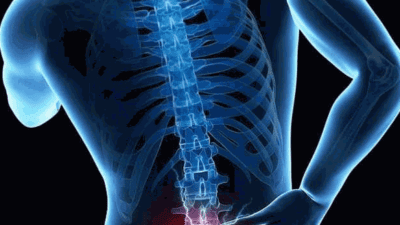Saraf Kejepit: Gejala, Penyebab, Jenis, dan Tindakan Penyembuhan
When it comes to understanding and writing about saraf kejepit (pinched nerve), it is crucial to have a good understanding of its causes and symptoms. Pinched nerves happen due to excessive pressure on nerves caused by various tissues such as bones, cartilage, and muscles, among others. Pinched nerves can lead to severe pain and tingling sensations. Below is a rewritten and comprehensive guide to saraf kejepit, its symptoms, causes, types, and proper treatment.
What Is Saraf Kejepit and Its Causes?
Saraf kejepit occurs when nerves are compressed or pressurized by adjoining tissues, such as bones and muscles, and become damaged. The significant cause of this condition is the sustained pressure on nerves in a particular position, such as crossing your legs for long periods. Other specific causes of pinched nerves are herniated disk, inflammation in joints, spinal stenosis, carpal tunnel syndrome, and heavy injuries after sporting activities or accidents. If left untreated, it can cause long-term damage to the nerves, resulting in difficulty in movement and activities.
What Are the Symptoms of Saraf Kejepit?
Saraf kejepit usually manifests progressively, with some symptoms disappearing intermittently and then resurfacing soon later. Below are some common symptoms of this condition:
1. Burning Leg Pain
Pinched nerves can cause tremendous pain in the lower back and spine, which spreads throughout the legs. This type of pain is accompanied by a hot and burning sensation.
2. Radiating Neck and Arm Pain
Pinched nerves can occur on the neck and cause a sharp and radiating pain that extends to the shoulder, wrist, and fingers.
3. Weak Legs
One of the tell-tale signs of pinched nerves is evident weakness in the legs. It becomes challenging to move, and exertion leads to fatigue quickly. Over time, it can lead to muscle atrophy or loss of muscle tone.
4. Weakened Grip
When nerve pressure happens in the neck and affects the arms, it can lead to weakened or loss of grip strength. The person may experience difficulties performing small tasks like holding a pen.
5. Numbness
Excessive pressure on the nerves can cause some form of numbness or lack of sensation akin to pins and needles. In some cases, nerves may become totally unresponsive to stimuli.
6. Stabbing Sensations
Pinched nerves can cause sharp and stabbing sensations or paresthesia. This symptom is often associated with carpal tunnel syndrome that affects the wrist.
7. Urinary Incontinence
Pinched nerves that occur in the lower back region can affect the control of the urinary tract, leading to sudden urgency, and frequent visits to the bathroom.
Types of Saraf Kejepit
Two main types of saraf kejepit exist:
1. Herniated Nucleus Pulposus (HNP)
HNP usually happens in the spine, causing severe pain in the back muscles and legs. Usually, it occurs due to damage or fracture in the vertebral disc located between the spinal bones.
2. Nerve Entrapment Syndrome
This type of saraf kejepit causes pain, numbness, or atrophy in specific nerves, most commonly the median nerve in the wrist that leads to carpal tunnel syndrome.
Treatments for Saraf Kejepit
The treatment for pinched nerves depends on the severity of the condition, and there are two primary categories: mild and severe conditions. For mild conditions, it is essential to make lifestyle changes such as engaging in low-impact physical activities, stretching, and resting. Severe cases may require anti-inflammatory medication, injection therapy, or surgical procedures to reduce the pressure on the nerves.
Conclusion
Pinched nerves can cause severe pain and discomfort that can impede daily activities. Early recognition and proper treatment of this condition can help alleviate the symptoms and prevent further damage to the nerves. It is vital to seek medical attention if you notice any of the symptoms mentioned above.




